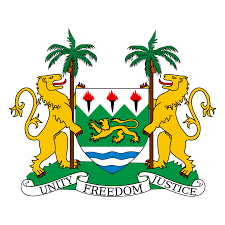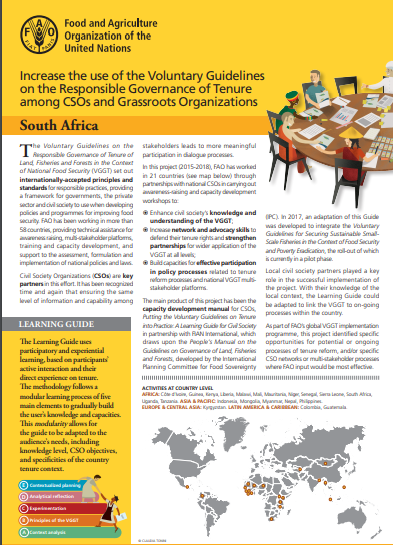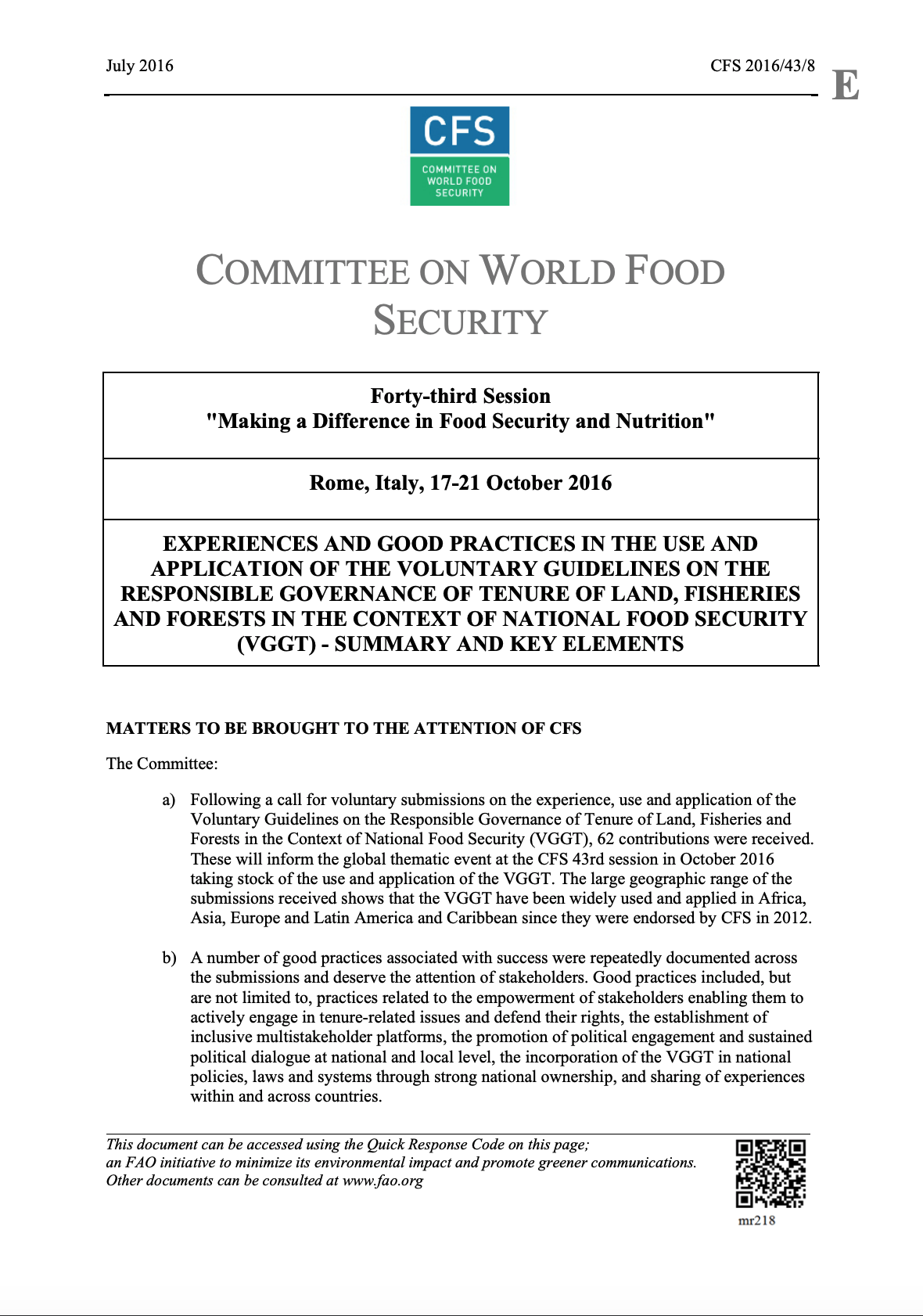Augmenter l’utilisation des Directives volontaires pour la gouvernance responsable des régimes fonciers (DVGF) parmi les organisations de la société civile et de base
Les Directives Volontaires sur la Gouvernance Responsable des Régimes Fonciers applicables aux Terres, aux Pêches et aux Forêts dans le Contexte de la Sécurité Alimentaire Nationale (DVGF) ont défini des principes et des standards internationalement reconnus pour des pratiques responsables, fournissant un cadre aux gouvernements, au secteur privé et à la société civile à utiliser pour l’élaboration de politiques et de programmes visant à améliorer la sécurité alimentaire.












